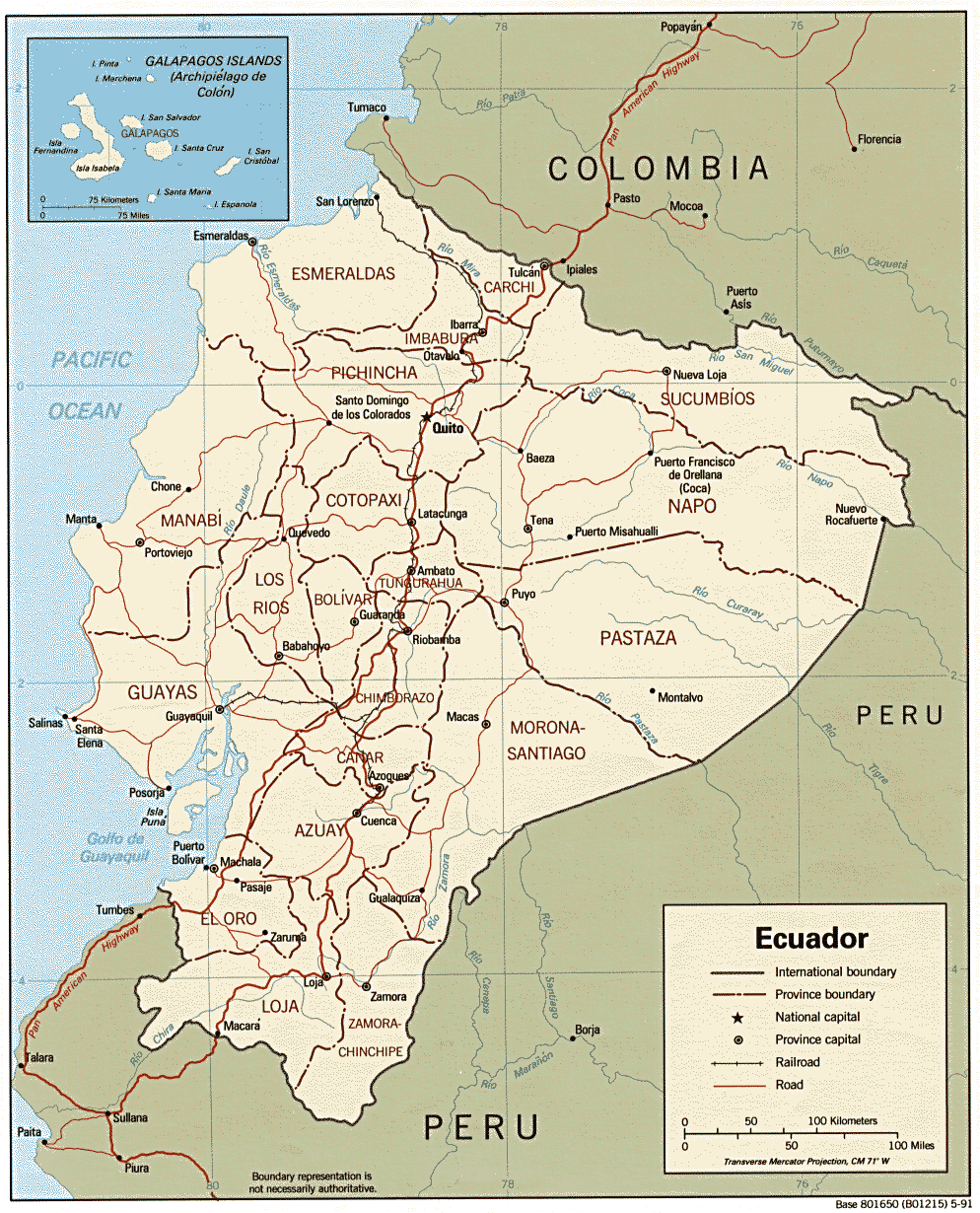Ecuador: The parties of the bankers, the banana merchants and the generals are wiped off the electoral map

[Translation of an article from La Jornada of Mexico City for February 19. See original here.]
By Blanche Petrich
Quito, February 18 – The elections on Sunday buried the old political class that had governed Ecuador during the 20th century. As the official vote count by the Consejo Nacional Electoral (CNE) of the races for members of the national and provincial assemblies goes on, a new map is being drawn: the parties of the bankers, the banana merchants and the portions of the military that shaped the destiny of the country between coups d’état, conspiracies, uprisings and plunder have disappeared from the national geography.
Legislating during the new term of the [unicameral] Assembly, with a total of 137 members, will be the ruling party, the Alianza Patria Altiva y Soberana (PAIS), with between 91 and 94 seats. The exact count is not yet certain. As a very diminished second electoral power comes Creando Oportunidades (CREO) with between 20 and 25 seats.
PAIS was only formed as a party in 2006 for Rafael Correa’s first electoral campaign. CREO appeared last year to champion the conservative Guillermo Lasso.
At the other extreme, Colonel Lucio Gutiérrez’s Partido Sociedad Patriótica is left with seven congressmen, among them his brother Gilmar Gutiérrez. Although polling agencies and the communications media claimed for weeks that this ousted former president would challenge Correa in a runoff, the tally shows that he carried only Napo, the province he is from, in the Amazon, one of the poorest regions in the country and the breeding ground for the army’s infantrymen. Voting behavior shows that this remote point in the Ecuadorian geography is an Achilles’ heel for Correa.
One of the most significant defeats is perhaps that of the Partido Social Cristiano, which represents the oligarchy that installed almost all the presidents in the past. Analysts hold that if its historic leading figure, Jaime Nebot, powerful mayor of Guayaquil, had run, a good deal of the forces of the Right would have gathered around him. But on this occasion he preferred to sit it out and not to run. Their candidates for the legislature won eight seats. One of the three losers is asking for a recount.
Three organizations have disappeared from the political map. The most dramatic case is that of Álvaro Noboa’s Partido Renovador Institucional Acción Nacional (PRIAN). One of the richest men in the country, with the greatest number of businesses, mainly in the banana trade, Noboa has a history as a repressor of workers and the greatest generator of precarious jobs, who has run for the presidency five times and has gone to a runoff on two occasions. Many journalists adore the banana merchant politician’s comic bent, which did not take them in this time: with 3.7 percent of the votes against 56 percent for Correa, he appeared before the CNE to claim electoral fraud and to ask for a recount, vote by vote. “What would we do without Alvarito?” they comment in reportorial circles.
Also wiped out was the Partido Roldosista de Ecuador, the organization run by former president Abdalá Bucaram, removed from office in 1997 after being declared “crazy” and now in exile in Panama. [The eccentric Bucaram had labeled himself “ El Loco.”] This time he chose an evangelical preacher with neither charisma nor political sophistication to run in his name. Only his son, Dalo Bucaram, managed to keep his seat in the assembly.
The other two to disappear are Ruptura, a splinter group of the Correista movement, and the Socialistas del Frente Amplio.
The Movimiento Unidad Plurinacional de las Izquierdas-Movimiento Popular Democrático (Maoist) will have five seats.
Among the most prominent legislators of the majority PAIS caucus is 29-year-old Gabriela Rivadeneyra, former governor of Imbabura and one of those most often mentioned as a possible successor to Correa for the leadership of the citizen revolution when he finishes his second term in 2017. There is also the soccer player, Iván Hurtado, former captain of the Ecuadorian team and forward for the Greek team; Carlos Viteri Gualinga, popular musician, anthropologist, former official of the BID [Banco Interamericano de Desarrollo] and a Quechua of the Amazon community of Sarayaku, in the province of Pastaza; and journalist María Augusta Calle, one of the most visible and most often attacked promoters of the new Ley de Comunicación Social, which will be the first battle to be taken up by the new congress.
A curious fact: a dozen “television stars,” comedians, hosts and models – in the style of Gaby Pazmiño, Carlos Matamoros and Claudia Campusano, Rosita the taxi driver – that minority parties offered as candidates for legislative seats (fame to cover a lack of ideas) will still be in show business. Almost nobody voted for them.
[You can subscribe to an RSS feed for this website. Click here.]
Tags: Abdala Bucaram, Alianza Patria Altiva y Soberana, Alvaro Noboa, Creando Oportunidades, Ecuador, elections, Gabriela Rivadeneyra, Gilmar Gutierrez, Guillermo Lasso, Jaime Nebot, Lucio Gutierrez, Partido Renovador Institucional Accion Nacional, Partido Roldosista de Ecuador, Partido Social Cristiano, Partido Sociedad Patriotica, Rafael Correa++++++++++++++++++++++++++++++++++++++++
HELP-Matrix Humane-Liberation-Party Blog ~ http://help-matrix.blogspot.com/ ~
Humane-Liberation-Party Portal ~ http://help-matrix.ning.com/ ~
@Peta_de_Aztlan Blog ~ http://peta-de-aztlan.blogspot.com/ ~ @Peta_de_Aztlan
+++++++++++++++++++++++++++++++++++++++++


No comments:
Post a Comment
Please keep comments humane!